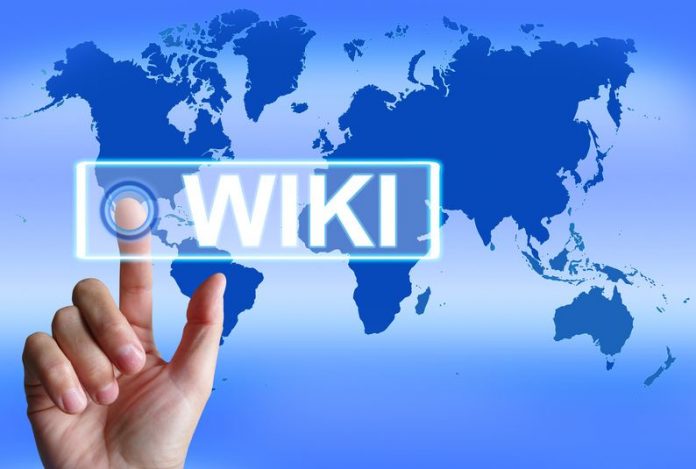What is a “wiki” (pronounced wee-kee)?
A wiki is a content management system that can allow for community input. This is in the spirit of the “wiki way” where the community members can add to or even edit existing web pages.
In this sense, a wiki houses documents that may be the result of a collaboration between different authors.
One source claims that the term “Wiki” is also an acronym for “What I Know Is…”1 whilst others support the derivation of the name from the Hawaiian term “wiki wiki” which means “informal” or “quick” 2.
Uses for a Wiki:
A wiki can be used in a variety of ways including:
– collaborative authorship of documents
– comment on existing documents
– community development
– online manuals
A wiki with existing content, for example, a user’s manual, could be distributed with a software application. A wiki could be part of a private members’ area either as a community-building tool or as a user manual.
In which case some or all of the community members can have author privileges or as a user manual, in which case the community members could be excluded from making further comments (unless the focus on the community was on community-based documentation for the manual itself.)
If using access control, access to different levels of content based on the membership level could be employed.
There could be parts of the wiki (such as a static user’s guide) that is not open to further contribution and other parts representing various topics where community contribution is both invited and welcome.
Access Control:
The true spirit of the Wiki Way is to allow for the online collaboration of documents for visitors to be able to create their own pages or to edit existing pages.
However, there are also needs as noted above where the website owner may not want documents changed by just anyone visiting the site.
The owner may wish to retain full control over page content or may want to grant authoring privileges to only select people. This can only be done if the wiki software has a built-in capability to grant authoring access and even viewing access to selected groups as defined by the website owner.
“Groups” are created with different access rights. For example, the “public” group may have “read-only” access; the “authors” group may have both “read and write” access;
And the administrator may have read, write, and upload access (required for images and other files) as well as the ability to create groups. The ability to read certain content may also be restricted to specific groups.
Software:
There are numerous software applications34 that can run a wiki in a variety of programming languages including Perl (CGI), ASP check, and PHP.
Applications may or may not be integrated with a database. The database used can also vary. Commonly a PHP wiki is integrated with a MySQL database.
Some wikis don’t use a database instead of using a “flat file” system based on text files, either straight “.txt” files or perhaps a proprietary system where the file extension is based on the file name category.
Some examples of popular wiki software are:
Media Wiki
– https://www.mediawiki.org/wiki/MediaWiki
HelpieWP (a.k.a. Helpie Wiki)
– https://helpiewp.com/wiki
Tiki Wiki
– https://info.tiki.org/ (Tiki Wiki CMS Groupware)
PmWiki
– http://www.pmwiki.org/ (flat file system that uses category names as file name extensions instead of the more conventional .txt extension)
DokuWiki
– https://www.dokuwiki.org/dokuwiki (DokuWiki is a versatile but simple and easy wiki application to use)
XWiki (CMS)
– https://www.xwiki.org/xwiki/bin/view/Main/
Notable Wiki on the Web (Wiki in the Wild):
– Wikipedia is the online free encyclopedia
http://www.wikipedia.org
– The Word Press Codex is a documentation manual for the very popular Word Press blog software
http://codex.wordpress.org
– Nucleus CMS documentation
http://wiki.nucleuscms.org/
– The JS Wiki, a community-edited centre
https://js.wiki/
– Another resource is OpenSourceCMS 5
http://www.opensourcecms.com
This site has installations of not only several popular wikis but also many Content Management Systems and blog software. Open Source CMS uses full installations and provides access as both an administrator and a user.
GNU General Public License 4:
It is the open nature of document contribution editing that differentiates a wiki from a blog; that and the usual inclusion of a wiki “markup language” or wiki syntax which is a simplified way to add formatting to text that is converted to valid HTML by the wiki software. Many wiki software systems are ‘open source” licensed under the General Public License of the Free Software Foundation.
Try before you “buy”:
Perhaps the best way to get a feel for the wiki software is to try it out. In many wiki you will find a link to the “wiki sandbox” or “wiki playground”. Content entered here is considered to be temporary and you can try out the different formatting syntax to see how it all works.
So, consider the nature of your site, the need for online documentation and the level of desired access for visitors and contributors and you will be able to decide if your website needs a wiki.
References:
1 wiki.java.net/bin/view/Javapedia/Glossary
2 Wiki, From Wikipedia, the free encyclopedia.
http://en.wikipedia.org/wiki/Wiki
3 A long list of wiki software in different programming languages
http://c2.com/w4/wikibase/wiki.cgi?LongListOfWikiClones
4 GNU General Public License
http://www.gnu.org/copyleft/gpl.html
5 Open Source CMS is a site with installations of many types of Content Management Systems, Wiki, and blogs that you can use to try out the software from both an administrator’s and user’s perspective.
http://www.opensourcecms.com

